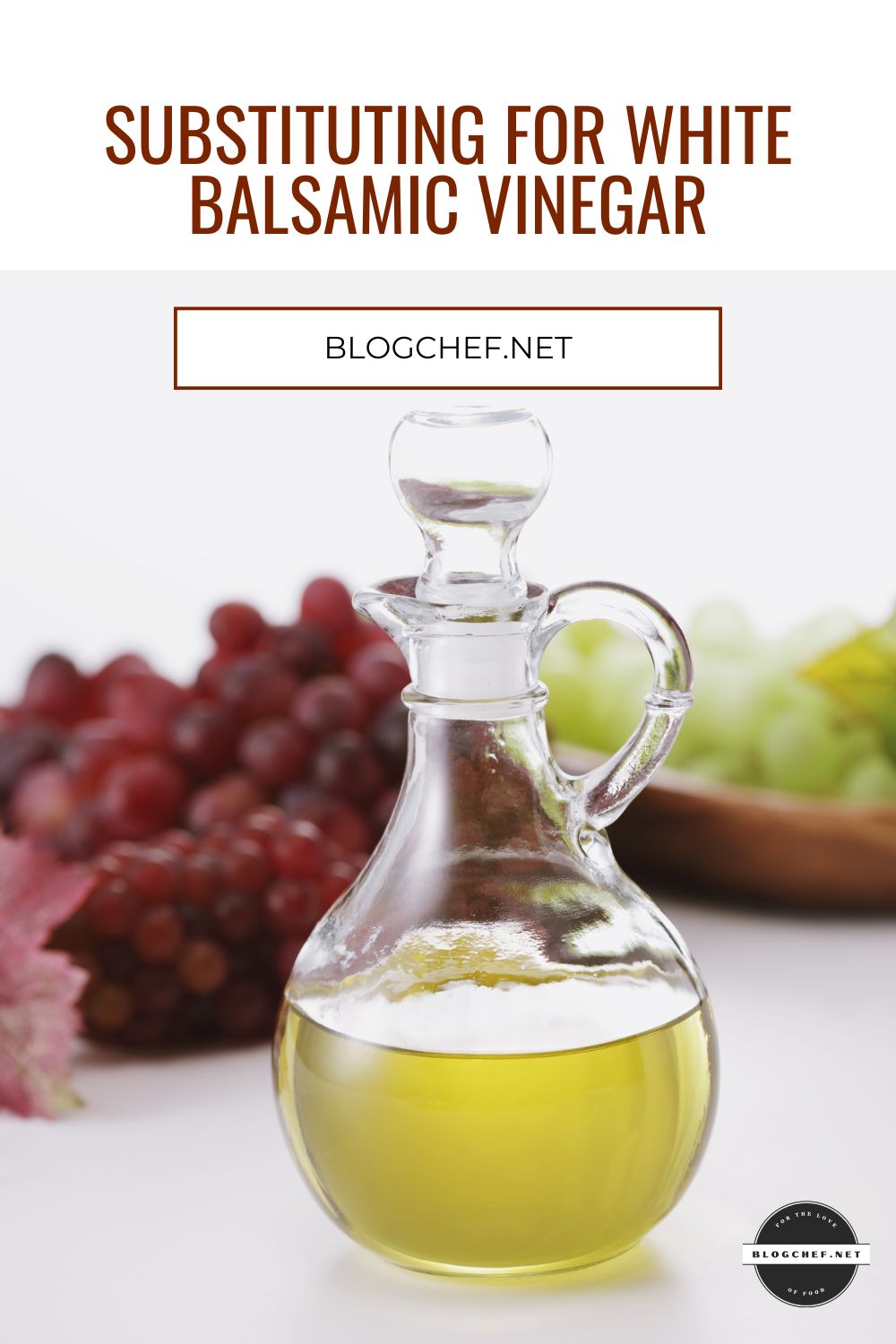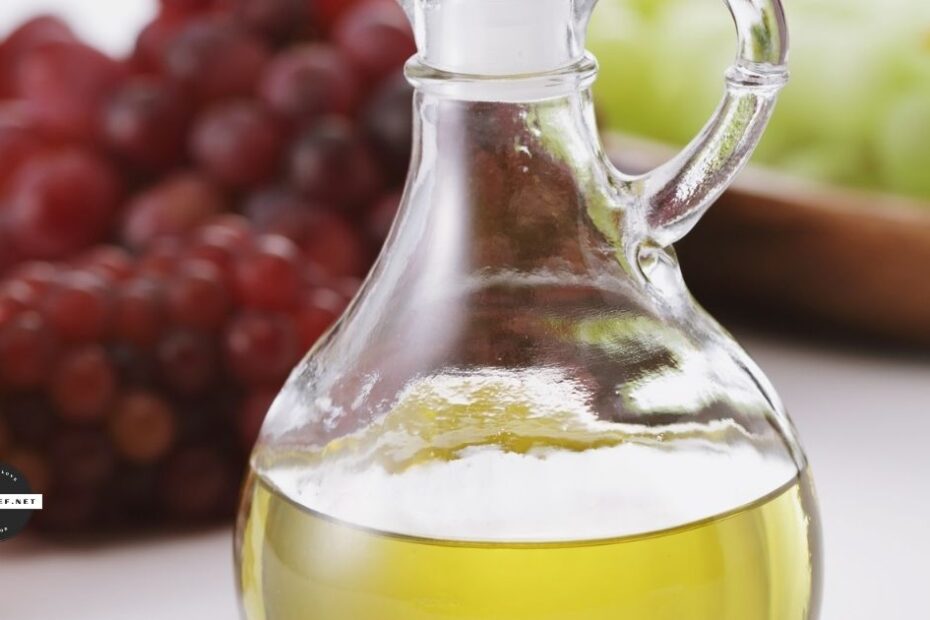White balsamic vinegar brings a delicate sweetness and beautiful color to your recipes, but it’s not exactly a common pantry staple. If you’re trying not to overspend on your meal planning, you may want to avoid adding to the vinegar collection in your pantry. That’s when you need a good substitute.
Depending on what you’re making, the best white balsamic substitute could be champagne vinegar, plain lemon juice with a bit of sugar, or something else. Let’s talk through the options.
Read next: Vinegar uses and substitutes: A guide

The quick answer(s)
These ingredients are the best substitutes for white balsamic vinegar:
- Champagne vinegar. Often your best option. It’s mild, slightly fruity, and won’t overpower your dressings or sauces. Substitute 1:1 for white balsamic. Read: Top substitutes for champagne vinegar.
- Rice vinegar. Rice vinegar works nicely in salad dressings and light sauces. It’s mild and a little sweet. This also substitutes 1:1 for white balsamic. Read: Can I substitute rice vinegar for white wine vinegar?
- White wine vinegar and sugar. Mix 1/4 teaspoon sugar with 1 tablespoon white wine vinegar and use that in place of 1 tablespoon of white balsamic. White wine vinegar is more acidic, so the added sugar balances that out.
- Apple cider vinegar. ACV has a sharper, fruitier flavor than white balsamic, but it works well in recipes with olive oil. The substitution ratio is 1:1. Read: What can you substitute for apple cider vinegar?
- Lemon juice and sugar. In a pinch, mix 1/4 teaspoon sugar with 1 tablespoon lemon juice and substitute it for 1 tablespoon white balsamic. Be ready to adjust more more lemon or more sugar, depending on how your recipe turns out.
What not to substitute for white balsamic
You might think any old vinegar can stand in for white balsamic, but, unfortunately, that’s not the case. Avoid using these as substitutes:
- Traditional balsamic vinegar. Dark balsamic vinegar has a much richer flavor and darker color than white balsamic. Using it instead of white balsamic will change the taste and look of your dish.
- Distilled white vinegar. White vinegar is too harsh to use as a substitute. If you had no other option, you could dilute it with water and add sugar to taste, but the results will probably be disappointing.
White balsamic vinegar FAQs
What is white balsamic vinegar?
White balsamic vinegar is a mild, slightly sweet vinegar made from Trebbiano grapes. Compared to traditional balsamic vinegar, it is cooked at a lower temperature so it does not caramelize. The color is pale and the flavor is gentler than regular balsamic. Read next: What does balsamic vinegar taste like?
What is the best substitute for white balsamic vinegar?
Champagne vinegar is often the best substitute for white balsamic because it has a mild flavor and light color.
Can I use dark balsamic vinegar instead of white balsamic vinegar?
You can use dark balsamic vinegar in place of white balsamic vinegar, but there are better options. Dark balsamic has a richer flavor and its dark coloring may change the look of your dish. Instead try champagne vinegar or rice vinegar if you have it.
Can I use lemon juice instead of white balsamic vinegar?
Yes, you can substitute lemon juice for white balsamic vinegar, if you add a pinch of sugar to balance the sharpness.
